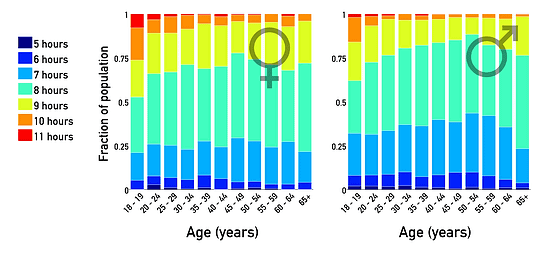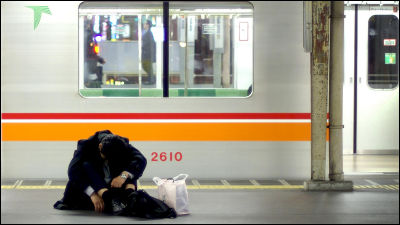What is the reason why sleeping time differs for each Japanese or country in the world?

ByMyleen hollero
The University of Michigan unveiled a jet lag compensation application "Entrain"We analyzed the sleep data from 100 countries and thousands of people from the world, and presented the results of research that examined how the global sleep patterns are changing.
Smartphones uncover how the world sleeps | University of Michigan News
http://ns.umich.edu/new/multimedia/videos/23822-smartphones-uncover-how-the-world-sleeps
"Entrain" provided by the University of Michigan is a free application that allows you to adjust jet lag by setting the time zone, bedtime / wake-up time, travel schedule and so on. CreaturesCircadian rhythm(Body clock) is set by 20,000 neurons of the size of the rice grain that exists behind the eyes, and it is controlled by the amount of light such as sunlight taken from the eyes. Entrain said that by lighting the light of the smartphone by this mechanism, the body clock can be adjusted to eliminate jet lag.

Users of Entrain can transmit data such as their age, gender, country of origin, set light intensity, sleeping time, etc. in opt-in, and 8% of the users accept data transmission.

Analysis of the collected data revealed that there was a difference in the "natural circadian rhythm" and "actual sleep schedule" that the research team had anticipated from country to country. It turned out that the world's slowest sleeping time is "7 hours 24 minutes" between Japan and Singapore. The longest sleeping time in the world is "8 hours and 12 minutes" in the Netherlands. There is a difference in sleeping time about one hour for each country.

In Jawbone's survey of fitness tracker, the Japanese sleeping time is said to be the shortest in the world.
"It is Japanese who are not sleeping most in the world" turned out by visualizing lifestyle patterns by city - GIGAZINE

About this result, Mr. Daniel Forger of the University of Michigan explains, "It was bedtime that the differences among countries were particularly large, which is thought to be affected by social and cultural pressures." Although the wake-up time was not so different from the natural circadian cycle, the culture and society of the country of origin influenced biological bedtime to sleep, and a difference appeared in sleeping time.
The University of Michigan plans to continue research with Entrain data in the future and is seeking data from users. Applications can be obtained from the following.
Entrain on the App Store
https://itunes.apple.com/jp/app/entrain/id844197986?mt=8
Entrain - Android application on Google Play
https://play.google.com/store/apps/details?id=edu.umich.entrain&hl=ja
Related Posts:







